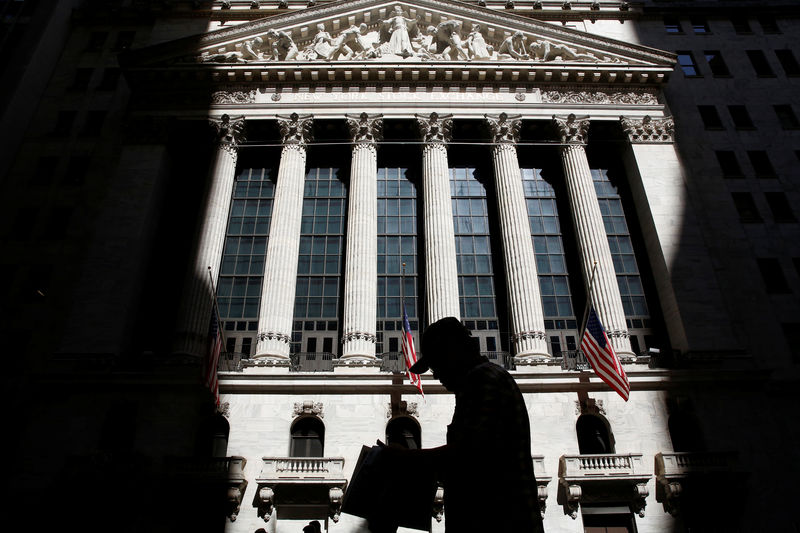Investing.com - Here are the top five things you need to know in financial markets on Monday, October 8:
1. Wall Street Points to Lower Open
U.S. stock index futures pointed to a lower open, amid ongoing concerns that rising U.S. interest rates are gradually making equities less attractive for investors.
Rising bond yields can crimp demand for assets perceived as riskier, such as stocks, particularly when those yields are higher than those of equities.
At 5:45AM ET, the blue-chip Dow futures were down 65 points, or 0.25%, the S&P 500 futures shed 5 points, or around 0.2%, while the tech-heavy Nasdaq 100 futures indicated a decline of 25 points, or roughly 0.3%.
Trading volumes were expected to remain thin, with most banks and federal institutions closed for the Columbus Day holiday. That also means no major data releases are on tap for Monday.
2. U.S. Bond Markets Closed for Columbus Day
While U.S. stock markets are open for trade on Monday, bond markets will remain closed in observance of Columbus Day.
The holiday is one of only two in which stock and bond-market holidays diverge. Veterans Day is the other.
Market focus this week will remain largely attuned to moves in U.S. bond yields, which have surged recently following a batch of upbeat economic data that bolstered the case for the Federal Reserve to raise rates in December and beyond.
The yield on the benchmark 10-year note reached its highest level seen since 2011 on Friday. It climbed about 15 basis points last week and is up about 20 basis points over the last month.
Currency markets were operating as usual.
The U.S. dollar index, which measures the greenback’s strength against a basket of six major currencies, was up around 0.3% to 95.56, after hitting a six-week high of 95.78 last week.
3. Italy Drags Down European Markets
Italian politics remained a drag as the European Commission warned the country's budget deficit breached past commitments, leading Rome to insist it would "not retreat" from its spending plans.
Italy's Deputy Prime Minister Matteo Salvini on Monday dubbed European Commission President Jean-Claude Juncker and Economics Commissioner Pierre Moscovici as enemies of Europe, further adding to negative sentiment.
The FTSE MIB index slumped more than 2% to its lowest since April 20, 2017, with lenders such as Unicredit (MI:CRDI) faring the worst.
Elsewhere, Germany's DAX slumped around 0.5%, while the UK's FTSE fell 0.3%.
The euro was a shade lower at 1.1480 (EUR/USD), falling back towards last week’s one-and-a-half month lows of 1.1463.
4. Chinese Equities Suffer Worst Day in Months
China's stocks fell sharply on the first trading day since the Golden Week holidays ended, despite an announcement from Beijing over the weekend that it would slash the level of cash that banks must hold as reserves.
The move by China's central bank, its fourth in 2018, came amid concerns about the economic impact of Beijing's ongoing trade war with Washington.
China's blue-chip CSI300 index tumbled 4.3%, its biggest daily loss since February 2016, while the main Shanghai Composite Index dropped 3.7% to end at the lowest level since June 19.
Most other markets in the region also closed in negative territory, while Japan's markets were closed for a public holiday.
5. Oil Slides Amid Talk of U.S. Waivers on Iran
In commodities, oil prices were on the backfoot after the U.S. said it may grant waivers to sanctions against Iran's crude exports next month, and as Saudi Arabia was said to be replacing any potential shortfall from Iran.
U.S. oil was down 1% at $73.56 a barrel. Brent crude fell 1.3% to $83.06 per barrel.
Iran is the third-biggest producer in the Organization of the Petroleum Exporting Countries (OPEC), supplying around 2.5 million barrels per day (bpd) of crude and condensate to markets this year, equivalent to around 2.5% of global consumption.
